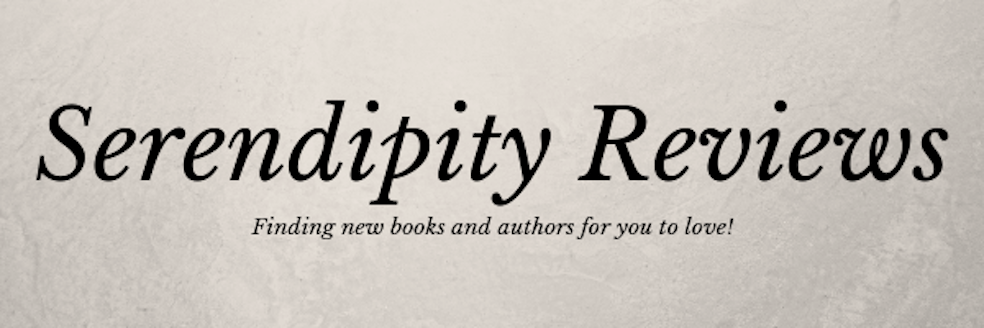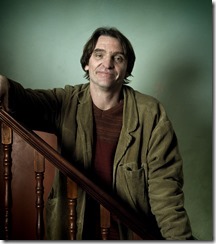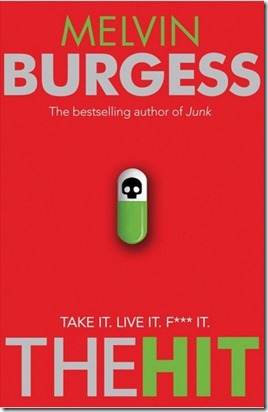I am so pleased to welcome the legendary YA author Melvin Burgess to the blog today to tell us all his writing secrets and to give details about his new book The Hit which I will be reviewing later today.
The Hit is published this month, how do you normally like to spend a publication day?
Publication day isn’t such a big deal, but it’s still nice – you usually get a card or a bottle of something from the publisher, or the publicity company if you’re lucky. I pop it up on Facebook and Twitter and people send congrats and tell you how much they’re looking forward to reading your book – very pleasant! And then I’ll probably drink the bottle at the weekend …
I understand the initial idea for the book came to you via an unusual route, can you tell me more about that?
The basic idea wasn't mine. Two philosophy lecturers, Brandon Robshaw and Joe Chislett, came to the Chicken House wanting to write a novel for young people that would touch on the bigger issues, including ideas that had come up in their A level philosophy classes. They produced a novel in which the basic premise for the Hit – the idea of a drug that kills you in a week – was buried. The MD, Barry Cunningham, told them to concentrate on that idea, which they did, but it didn’t work out – so with their permission he came to me with it.
So it’s a book with several fathers – the students, Rob and Joe coming up with ideas, Barry spotting the good one, and me writing it.
I’ve always loved the novels of writers like Philip K Dick – thrillers whose plots somehow touch on philosophical issues without ever expounding, and I’ve always wanted to try one. I took as many elements as I could from the original novel and tried to make it my own, hopefully successfully. I kept as many of the names, situations and settings as I could but it’s all morphed a great deal along the way.
Novel writing is a very isolated business, so I’m always delighted to try and find ways of making it more collaborative. We tried to start out with a treatment, as if it was a film or TV idea, although looking back I’m not sure if we saved much time like that, so much had to be scrapped. Still, I enjoyed it all and would do it again if the right idea came along.
Can you tell my readers a little bit about your new book, The Hit?
As I say, the original premise is that there’s a drug that can kill you in a week. Originally that’s all it did and I thought - that’s not a drug, that’s a poison! So I gave it some kick as well. It was developed as a euthanasia drug to give you one fabulous week and then a clean death. But what happens if young people start taking it? – Super Youth! – and then you die.
The book is set in the future after forty years of recession. Unemployment, particularly youth unemployment, is sky high. A great many people see no way out of a life of poverty and strife. As a result, people are tempted to take Death – one glorious week, just thinking about you, just living life for yourself – doing what you want with no consequences.
Teenage Adam thinks none of this is going to affect him – his brother has a good job, he’s not rich but somehow he’s convinced himself that it’s all going to work out. How wrong he is! His brother dies fighting for civil rights, his dad is crippled – and finally his girlfriend dumps him. He has nothing. In a low moment he takes Death, thinking he has nothing to live for, and wakes up the next day burning up with life – just fizzing. He’s more alive than he’s ever been – and he rapidly finds out that actually, life is very, very sweet after all …
You recently published a horror story with Hammer which is quite different from your usual contemporary novels. Did you enjoy writing horror and would you like to write more?
I did enjoy it, but I found it hard. I wanted something that was more scary than those old Hammer films, which drew a bit from TV shows like Buffy, but at the same time had that cheesy side. I think I did it, and I may do another one, but if I do, I’ll use more first person narrative. I want to know what the demon thinks as well …
Do you work on one writing project at a time or can you juggle a couple?
I always try to just work on one thing at a time.
Do you find that the writing gets easier or harder with each book you publish?
Harder. You get more and more options as you get more experienced, so have to make more and more choices, and the chances of making the wrong choice get more marked. Unless of course you’re one of those writers who do the same thing each time, in which case maybe you can rattle them off.
What usually comes first - the character, the plot or the idea when starting a new project?
Usually the subject – I want to write something about something. The character and plot usually come in one piece if I’m lucky – in many ways they are totally intertwined. If the character is different, so would the story be. Imagine Cinderella if Cinders was a stop out. She’d not come back at mid night – different story! The earliest ideas are usually scenes – people in a situation. For instance, In Junk I knew that Tar was going to come out of prison and as soon as he touched her, Gemma was going to know it was all over – they were both clean and the love was gone. That defines the book in many ways, because it has the two major protagonists in a situation that defines the book as a love story, in which addiction is intimately involved in the love. In The Hit, one of the defining scenes was the death of Jimmy Earle. It’s all there – the riots, the temptation, the despair. It’s all there.
Do you plot out each book before you write it or do you let the story unfold as you go along?
I usually have something of a synopsis to help me along. It depends if it’s a character led book, or a plot led one, of course. If you plot in a great deal of detail before you start, you are much more likely to have a plot driven book. But I always have an outline.
Do you have a daily word count that you aim for when writing your first draft?
No, I work by hours. But if I get 2000 words done a day, I’m a happy bunny.
Do you edit your first draft as you write it or wait until you have finished it?
Both!
When you’re touring with your books, how do you find time to write?
I don’t even bother. Novels are like long distance running – you have to do some every day and you need a good run, a stable situation. Besides, time off is good. Although touring isn’t really much good for anything except touring, really.
Did you attend any writing courses before you were published?
None at all. Mind you, they were much rarer back in the day.
I understand you are teaching at an Arvon course later this year, how did that come about?
I was asked! I love doing Arvon courses, and any doubts I had about the value of writing courses was blown away by them. I would recommended them to anyone wanting to write –they are without doubt the best courses I’ve ever attended – so immersive.
Is there any non-fiction writing book that you would recommend?
Not really – I don’t know any. Go and do a course, I’d say.
Do you have any advice for aspiring and unpublished authors?
Just keep at it. It’s practise that gets you there in the end. Remember the rule of 10,000 hours. What’s the difference between a concert pianist and good amateur? The concert pianist will have practised for 10,000 hours – that’s the only constant. Fortunately for writers, reading counts as well. But that’s it – just don’t stop. Many very talented people give up just because they can’t take the rejection. Oh – and have a thick skin. You’ll need that for sure.
Thank you Melvin for such brilliant insights into your writing. The Hit is published by Chicken House in April. RRP - £7.99
To find out more about Melvin Burgess:



My favourite post of the day - really interesting to see how The Hit came about!
ReplyDelete